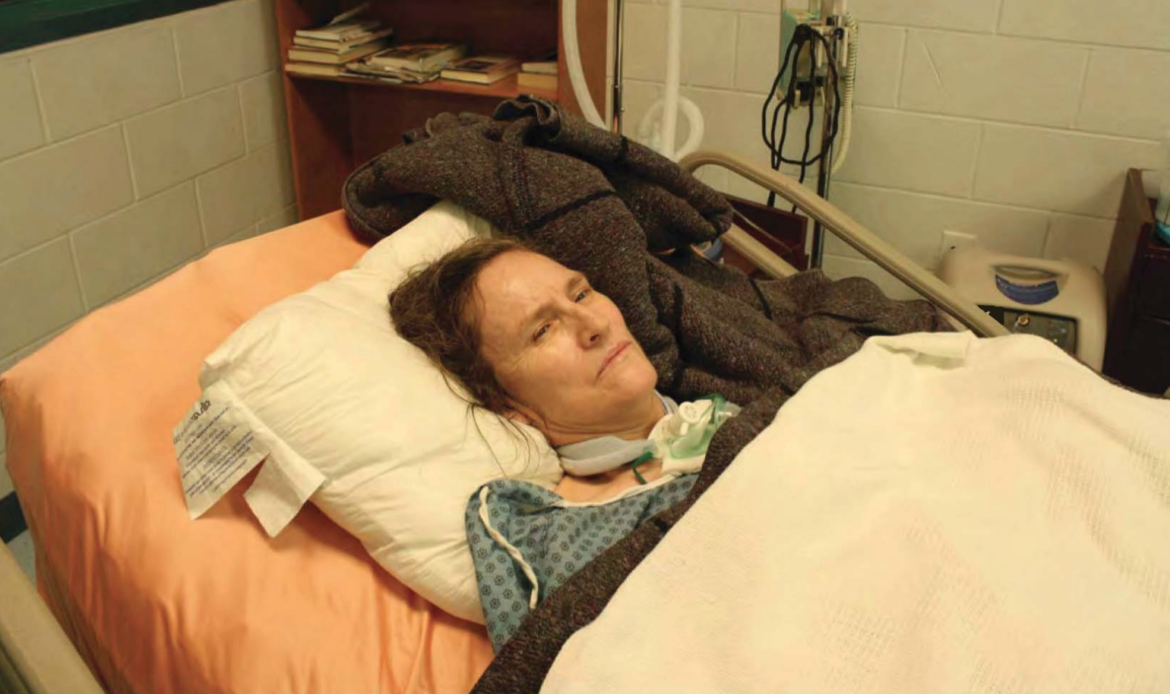(Part 2 of 3)
BRADENTON, Fla. — Criminal justice reformers say that letting very sick inmates out of prison early would be a sensible way to relieve pressure on Florida’s overburdened corrections system, and on taxpayers, who will pony up nearly half a billion dollars in 2020 for prisoners’ health care. Some inmates deemed “terminally ill” or “permanently incapacitated” and not a danger to themselves or others are referred by the Department of Corrections to have their cases heard by the Florida Commission on Offender Review (FCOR), a three-person panel, and be considered for conditional medical release (CMR).
The commission grants early release in about half of such cases it hears. In 2017-18, 39 inmates were referred for such release; 21 inmates were granted it. An FCOR report from 2015 found that 68.4% of inmates granted CMR died within four or five months of release.
The three commissioners who make up the FCOR don’t meet the inmates whose fates they decide. Rather, they are provided with details on their crimes, as well as their health histories and a release plan detailing where the inmate would go and what medical care and attention he or she would require. Because of privacy laws, the commissioners do not discuss particulars of the inmates’ medical conditions during the public hearings where they make their decisions.
During one such hearing Oct. 9, four of the 33 cases on the commissioners’ docket were to consider granting CMR. In the case of inmate Jason Bolton, who in April was sentenced to five years on drug possession charges, all three commissioners voted to grant it without much discussion. Records show that five days later, he was released.
[Part 1: 3 on Florida Commission Decide Parole of Thousands of Inmates]
[Part 3: Commission’s Supervision of Parole Can Take Personal Turn in Florida]
In the case of Jackie Merkison, sentenced to life in 2004 for sex abuse charges, all three commissioners voted to deny CMR. “Is this person terminally ill with a short life span?” Commissioner Melinda Coonrod said, explaining her thought process to the audience. “Life expectancy is less than a year, so if he deteriorates more, the Department of Corrections can send us an update. We can’t go into detail. He’s not at the very end of his life, but I will tell you, the charges are very serious — molestation of a child under 12, two counts of sexual battery of a child.”
Woman became quadriplegic during sentence
In the same October hearing, the commission considered the case of Ralph Dixon, a 73-year-old sentenced to 27 years in 2002 for the second-degree murder of his wife. FCOR’s victim advocate Jonathan Riley, who connects with crime victims, read aloud letters from the victim’s sisters. One complained that despite Florida’s strong commitment to victims’ rights, the Department of Corrections had only sent her notice of the hearing at 4:15 p.m. the day prior, via FedEx, and thus she didn’t have time to travel and speak in person.
[Part one:1 on Florida Commission Decide Parole of Thousands of Inmates]
Her letter said, “Mr. Dixon made the decision to end our sister’s life. As her life ended that day, so should Mr. Dixon’s. Since our sister cannot get clemency, we do not feel he is entitled to it,” they wrote. The commissioners voted to deny his release.
In the case of Gregory Donahue, serving five years for possession of methamphetamine, the commissioners explained that they were inclined to grant CMR, but were concerned about his proposed residence. “I don’t feel like he would be safe in that residence,” said Commissioner David Wyant. Coonrod agreed that she’d grant release if construction of the residence were completed. “I don’t want to put him in a position where he’s not going to be taken care of,” she said. Commissioners agreed that the case be redocketed.
The most famous case regarding conditional medical release may be one that is currently unfolding: Cheryl Weimar, who was sentenced to six years for aggravated battery and resisting arrest with violence following a 2015 fight with her boyfriend. On Aug. 21, while incarcerated at Lowell Correctional Institution in Ocala, Weimar was ordered to clean a toilet but refused because of a hip problem. Officers insisted, so she declared a psychological and medical emergency. The guards then allegedly yanked her to an area out of view of security cameras, and beat her so badly that she is now a quadriplegic, able to talk but not move her limbs.
According to one of her attorneys, Tallahassee-based Ryan Andrews, who has filed a federal lawsuit on her behalf, Weimar will require around-the-clock medical care for the rest of her life. Andrews said the Department of Corrections is considering seeking a medical release (though it isn’t yet on FCOR’s agenda) — but only because it does not want to be responsible for the cost of her care, he charges. “They’re definitely patient-dumping her,” he said in a phone call.
Court filings say that Weimar was in hospitals for three weeks — photos show she was chained to her bed — before being returned to the prison system, to “a barebones infirmary unit.” Her legal team is asking that she be transferred to a private, specialized medical facility in Tallahassee until her natural end-of-sentence date of Jan. 20, 2021. An emergency hearing regarding her care is set for Tuesday.
Several state senators have co-sponsored a bill that would have the Department of Corrections, rather than FOR, conduct the entire conditional medical review process with its own three-member panel. The measure will be considered in Florida’s next legislative session this spring.
This project was collaboratively produced with Jaxlookout and underwritten in part by The Vital Projects Fund.

It’s the time to learn from Netherlands how to empty the prison population:
https://www.theguardian.com/world/2019/dec/12/why-are-there-so-few-prisoners-in-the-netherlands